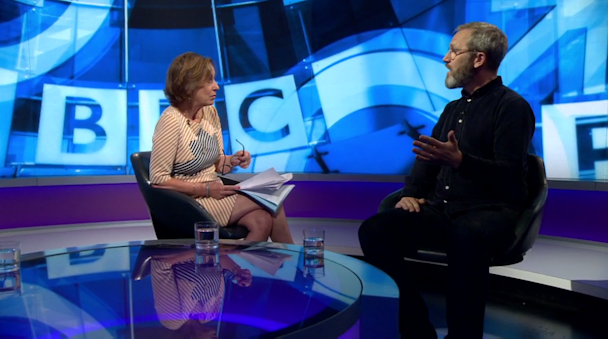BBC needs to talk value as it faces fallout over pay
Something most un-British is happening in the national conversation: we’re talking about pay. The six figure salaries of top TV talent and the payslips of public sector workers are two very different issues. Yet both come down to the matter of value and worth.

The BBC has been forced kicking and screaming to make the pay of its stars earning more than £150,000 public. With a reputation tainted by apparent blindness to the abuses of its stars – most notably Jimmy Savile – Auntie already receives far more scrutiny than it ever has in its 95-year history.
Yet there is still an opportunity for the BBC to play this one to its advantage.
Unlike the pay packet of a faceless bureaucrat, the value of on-screen talent is immediately apparent. The earnings of Gary Lineker and Chris Evans don’t come as a surprise because their work reaches so many people. They are the faces of truly popular broadcasting and the BBC should hold firm in championing them. The public understand that the BBC operates within a competitive marketplace and nearly all surveys say that people accept that top talent costs money.
If anything, the story told by figures is one of loyalty above greed, with the likes of Peter Capaldi getting payslips that would be laughable across the pond. Arguably the effect of going public will be an upwards alignment around the biggest earners. Talent will be breathing down the necks of their representation as clearly some have not structured the best deals for themselves. Chris Evans no doubt benefits from the firepower of having a cutthroat Hollywood agent, something that is still a relative rarity for UK-based television talent.
That two thirds of the high earners are male and a tenth are from a minority background is enormously concerning. It was nevertheless reassuring to see BBC director general Tony Hall on the front foot on this issue, preempting the criticism and immediately accepting that there is still more work to be done. For sure the Beeb is not alone in this and overall it compares well to other organisations in the entertainment space. The stark disparities between white men and everyone else speaks to the wider point that for all the media talk of diversity, fostering it at the highest levels take time and real commitment.
To be credible the BBC needs to send out some strong messages that it is going to shake up its talent roster and nurture the next generation.
Mark Borkowski is the founder of Borkowski.do. He tweets @MarkBorkowski
